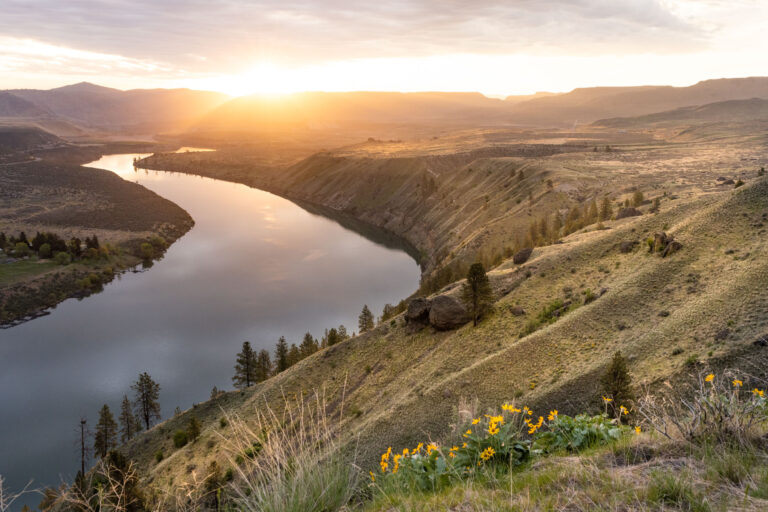You never step in the same river twice, goes the ancient saying. True enough. The Spokane River is an ever fluctuating, complex system that changes with the community around it AND changes the community around it. At one time, the Spokane River was the spiritual center of the native people who lived along the shores. To the new coming settlers, it became something else, a waste way where we poured our sawdust, flushed our sewage and dumped our municipal garbage. Today, like the river, our community is changing its perspective. We now embrace our river as a treasured community asset. We speed along the banks on mountain bikes, walk our dogs, hike, boat, fish, and often just sit and watch the waves with deep satisfaction. The river has become a focal point for parks, and for businesses that recognize their own health is connected to the health of the river.
Our goal at the Riverkeeper is to be a river advocate to the public. We work towards the Spokane River becoming and staying “fishable and swimmable.” After all, the river is yours but you may not have time to ensure that the rules guiding river protection are followed. We negotiate with dischargers and government agencies, we patrol the waters and report problems, we get volunteers on the river picking up litter, and we conduct citizen science so that we understand the river’s health. What follows is a snapshot of issues that face our river in 2017.

Pollution: In many ways, we are getting much closer to a cleaner river and the City of Spokane deserves some real credit. In 2017, the city initiated better pollution controls used by those who discharge into the river. The City of Spokane is building large holding tanks in their Combined Sewage Overflow (CSO) system to prevent millions of gallons of raw sewage from entering the river, and dischargers have put high-end filtration in place. In 2016, these CSO tanks captured millions of gallons of runoff that would have mixed with sewage and gone into our river prior to last year. This is exciting!
But in spite of this great progress, the city systems still discharge raw sewage and stormwater into the river during some heavy rainfall events. Further, several large dischargers have outdated permits and discharges that contribute to the nutrient and toxic (PCB) problems in the river. This problem needs fixing, but we feel that by working together, we will get there.
One of the largest issues is agricultural and land use pollution. Every spring, we still see the dirty plume in the river at the mouth of Hangman (Latah) Creek. This runoff consists of nitrogen, phosphorus and soil that triggers algae blooms that can reduce oxygen needed by fish and prompts toxic algae warnings. Spokane River tributaries like Hangman Creek and Deadman Creek have, in places, been stripped of their shoreline vegetation which is needed to intercept polluted runoff and soil from the surrounding lands. Some construction projects need to do a better job protecting and restoring shoreline forests that are critical to clean water and a healthy river.
Low flows: Remember 2015? Rafts stopped going through the Devils Toenail rapid in early June. Despite new in stream flow rules which help protect flows in the river, summer low-flows continue to decline to the detriment of recreation and wildlife. Our river is vulnerable to climate change, and warm weather means snow can melt more quickly, leaving very low water in the summer. The connection between the river and aquifer means municipal water use also removes water from the river. Again, some great conservation efforts are underway, but more will need to happen to address the issue in the coming years.
River Health: Is our river healthy? Yes, sections are very healthy while others need more help. Is it swimmable? Heck Yes! Fishable? You bet. Do we need to be good stewards and work hard to protect it? Yes. At the end of the day, be sure and get out there and have fun on the river. When you do, you will come to understand that the river really is the reason that Spokane exists.
Jerry White Jr. learned to fly fish at a young age and has been exploring Northwest rivers by boat and on foot ever since. In 2014, he signed on as the Spokane Riverkeeper, turning his lifelong passion for our local river into a full-time job.













